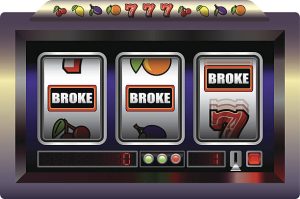
Random Number Generators (RNGs) are the backbone of fairness and unpredictability in online slots. They ensure that the outcomes of each spin are random, creating a level playing field for all players. Understanding how RNGs work can help demystify the inner workings of casino slots online and provide confidence in the fairness of the games.
At its core, an RNG is a complex mathematical algorithm that generates a sequence of random numbers. These numbers are used to determine the position of the reels and the symbols that appear on the screen when you spin the reels of an online slot. The RNG operates at an incredibly fast pace, generating thousands of numbers per second to ensure a constant stream of random results.

The first crucial point to understand about RNGs is that they are independent of previous spins. Each spin of the reels is a separate event, and the outcome of one spin has no influence on the next. This means that past wins or losses have no bearing on future results. Every spin is a fresh opportunity with equal chances of winning or losing.
The algorithms used in RNGs are designed to be highly complex and difficult to predict. They employ intricate mathematical formulas and seed values to ensure that the numbers generated are truly random. The seed value is an initial input that starts the sequence of random numbers. It is typically derived from various sources, such as the exact time when the spin button is pressed or the internal clock of the computer or server.
To provide further transparency and fairness, reputable online casinos often subject their RNGs to third-party testing and auditing. Independent testing agencies, such as eCOGRA or Technical Systems Testing (TST), assess the randomness and integrity of the RNGs to ensure that the outcomes are unbiased and unpredictable. These agencies rigorously test the algorithms and verify that the results align with statistical randomness.
It’s important to note that while RNGs ensure fair play, they also incorporate the concept of Return to Player (RTP). The RTP is the percentage of all wagered money that a slot game is programmed to pay back to players over time. For example, if a game has an RTP of 95%, it means that, on average, the game will pay back 95% of the total wagers over an extended period. It’s crucial to understand that the RTP is a long-term statistical average and does not guarantee specific results for individual players.






